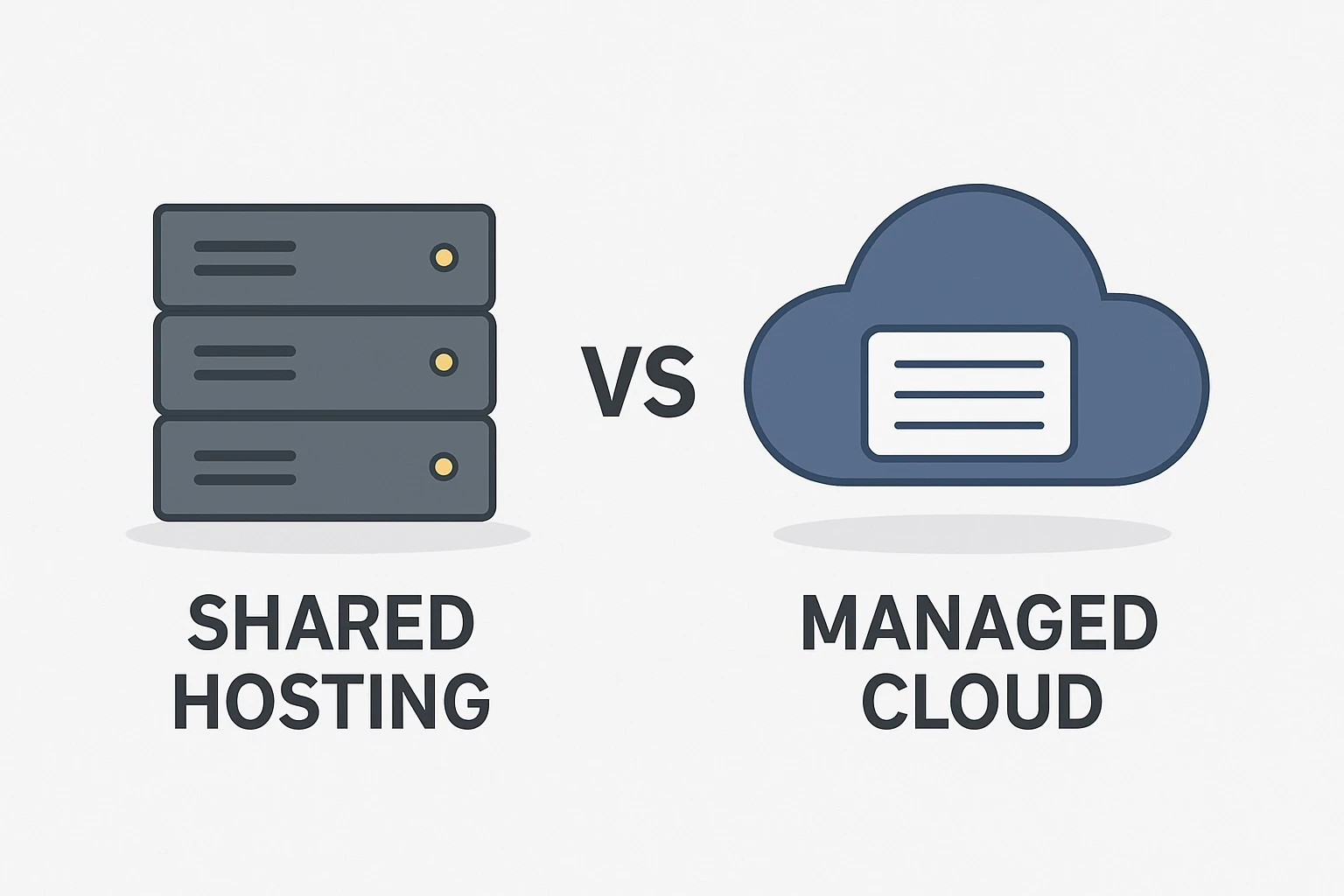From Shared Hosting to Managed Cloud: Why the Switch is Worth It

Your WordPress site is painfully slow - again. Your Laravel app crashed under a sudden wave of visitors. Support from your shared hosting provider ends with: "Consider upgrading to a more powerful plan." Sound familiar?
For many developers, digital agencies, and SaaS founders, this scenario is all too common. What once seemed like a cost-effective hosting solution now feels like a bottleneck. That’s where managed cloud comes in - not just as an upgrade, but as a smarter, more scalable foundation for modern web applications.
What Shared Hosting Really Means
Shared hosting is exactly what it sounds like: multiple websites hosted on the same physical server, sharing the same pool of resources—CPU, RAM, storage, and bandwidth. For the hosting provider, it's an efficient business model. For developers with dynamic, growing applications… not so much.
The downsides are hard to ignore:
- Noisy neighbors: One misbehaving site can hog resources and slow down everyone else.
- Minimal control: You’re limited to outdated PHP versions and very little server customization.
- No root access: You can’t configure things at a level serious apps often need.
- Performance bottlenecks: Shared CPU and RAM can’t handle traffic spikes or database-intensive workloads reliably.
Shared hosting once suited small blogs and portfolios. But if you're running business-critical applications, it's probably holding you back.
The Rise of Managed Cloud
Managed cloud combines the power of cloud infrastructure with expert, hands-on management. Unlike basic VPS or cloud server rentals, a managed cloud platform doesn’t just give you raw infrastructure—it manages everything for you.
This means:
- Security updates applied proactively
- Performance tuning and server optimization based on workloads
- Automatic scaling to handle traffic spikes
- Backups, monitoring, and incident response—done by professionals
In short: you focus on your code; the platform takes care of the infrastructure.
Top Benefits of Managed Cloud vs. Shared Hosting
1. Performance
With managed cloud, your application runs on isolated resources optimized for performance. Unlike shared hosting, no one else can affect your CPU or memory.
2. Scalability
Need to scale up during a product launch or flash sale? Managed cloud lets you scale vertically or horizontally in minutes—and back down again afterwards.
3. Security
Managed cloud platforms offer regular patching, firewall management, DDoS protection, and automated backups. Compliance with standards like GDPR is easier to maintain.
4. Flexibility
Choose your PHP version, install server extensions, and configure your environment how you need. It’s not one-size-fits-all anymore.
5. Developer Experience
Features like staging environments, Git deployments, and built-in CI/CD pipelines make developer workflows faster and safer. No hacking around .htaccess just to deploy safely.
When to Make the Switch
- If performance bottlenecks are slowing down your application and impacting customer experience.
- If downtime equals lost revenue—think e-commerce, membership sites, or SaaS dashboards.
- If your team is spending more time fixing server issues than building great features for users.
- If compliance or data privacy rules require audit trails, encrypted backups, or regional data centers.
If any of these sound familiar, it’s time to explore a better hosting approach.
Migration Considerations
Concerned about the process of migrating to managed cloud? You’re not alone. Common myths include:
- “It’s too expensive” — not when you factor in performance, uptime, and developer time saved.
- “Migration will take forever” — many managed providers (like us) offer automated tools for painless transitions.
- “Downtime is inevitable” — with expert support and planning, downtime can be minimized or eliminated.
A good managed cloud platform doesn’t just provide tech—it guides you through onboarding and ensures a smooth handoff from your old host.
Conclusion: The Next Step in Web Hosting
Shared hosting was a stepping stone for many projects—but modern web applications demand more. From performance and flexibility to security and scalability, managed cloud offers a fundamentally better experience for today’s sites and apps.
For teams building in Laravel, WordPress, or custom stacks, it's the logical step forward: a platform that grows with you, without the DevOps headaches.
Ready to make the move? Explore how LAY7 cloud can help you scale from stressed to streamlined with our managed cloud solution tailored for web applications.
